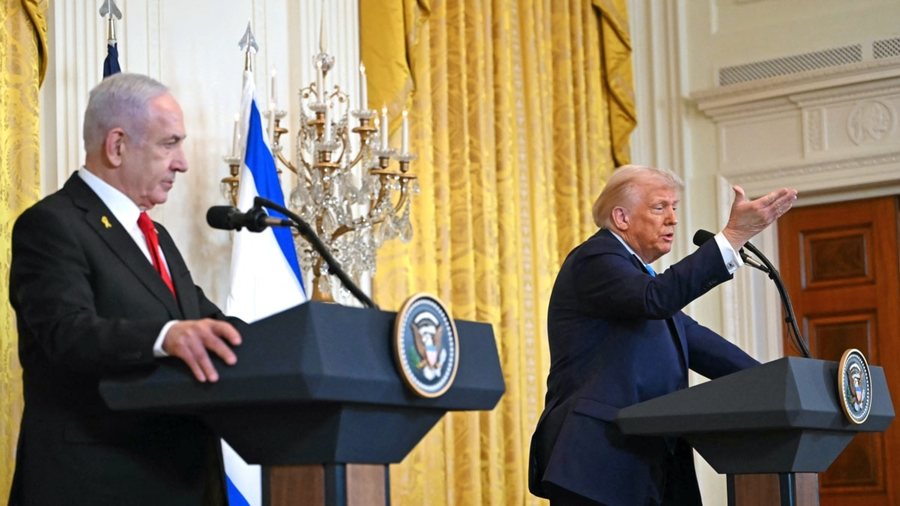
United States President Donald Trump announced a proposal on February 4th under which displaced Palestinians would leave the Gaza Strip, paving the way for the US to take ownership of this coastal territory and develop it economically into a "phenomenal" country where different nationalities can live in peace.
Trump said this would happen after relocating the Palestinian people to other places, to remove them from what he called a "hellhole" of destroyed buildings, after more than a year of war between Israel and Hamas, which the US and the European Union have declared a terrorist organization.
Trump made the proposal during a joint press conference with Israeli Prime Minister Benjamin Netanyahu, saying such a drastic step is necessary because other ideas to end the decades-long conflict between Palestinians and Israelis have not worked.
His proposal for Gaza would mean the US would have it under control, as well as overturning long-standing American policy supporting a two-state solution to the Israeli-Palestinian conflict.
Trump said the US would work to dismantle all unexploded bombs and other weapons in the territory, as well as to clear destroyed buildings, before developing the area economically.
"If necessary, we will do this. We will take that part, we will develop it, we will create thousands and thousands of jobs, and it will be something that the entire Middle East can be proud of," Trump said.
The president did not immediately provide details on where the Palestinians would be relocated, but said he would support their "permanent" settlement in other countries. Earlier in the day, he reiterated his call for Jordan, Egypt and other Arab states to accept Palestinians from Gaza.
Hamas has insisted that it wants to remain in Gaza.
Senior Hamas official Sami Abu Zuhri earlier condemned Trump's call for the Palestinians to leave as an "expulsion from their land."
Mark Dubowitz, executive director of the Foundation for Defense of Democracies, said Trump may have floated the idea to increase pressure after Arab countries rejected his demand to admit the Palestinians.
“Now, he’s ramping up the pressure: If you don’t accept them, we’ll take them out ourselves and take control of Gaza,” Dubowitz wrote on X. “Classic Trump: Going to extremes, making what once seemed unthinkable suddenly seem like a reasonable middle ground.”
In a statement released after Trump's announcement, Hamas rejected the idea that Palestinians should leave the territory.
"Instead of holding the Zionist occupation accountable for the crimes of genocide and expulsion, it is being rewarded, not punished," Hamas said. "We reject Trump's statements, in which he says that the residents of Gaza have no choice but to leave, and we consider them a recipe for creating chaos and tension in the region."
The Saudi Foreign Ministry issued a statement stressing that its support for the creation of an independent Palestinian state is an "unwavering, consistent and steadfast position."
According to the statement, Crown Prince Mohammed bin Salman, the de facto ruler of Saudi Arabia, has said that his country will not stop efforts to create an independent Palestinian state with East Jerusalem as its capital.
Trump said he had discussed his proposal with Netanyahu during their meeting at the White House. He also said he had raised the issue with other Middle Eastern leaders and claimed it had been received positively.
Netanyahu said Trump sees a different future for the Gaza Strip, which he described as the source of much "suffering and misery" for the Israeli people.
"He has a different idea," Netanyahu said. "It's something that could change history and it's worth pursuing."
Just two weeks into his second term, Trump hosted Netanyahu to discuss the future of the Gaza ceasefire, the release of hostages and a new attempt at a normalization agreement between Israel and Saudi Arabia. REL (A2 Televizion)











